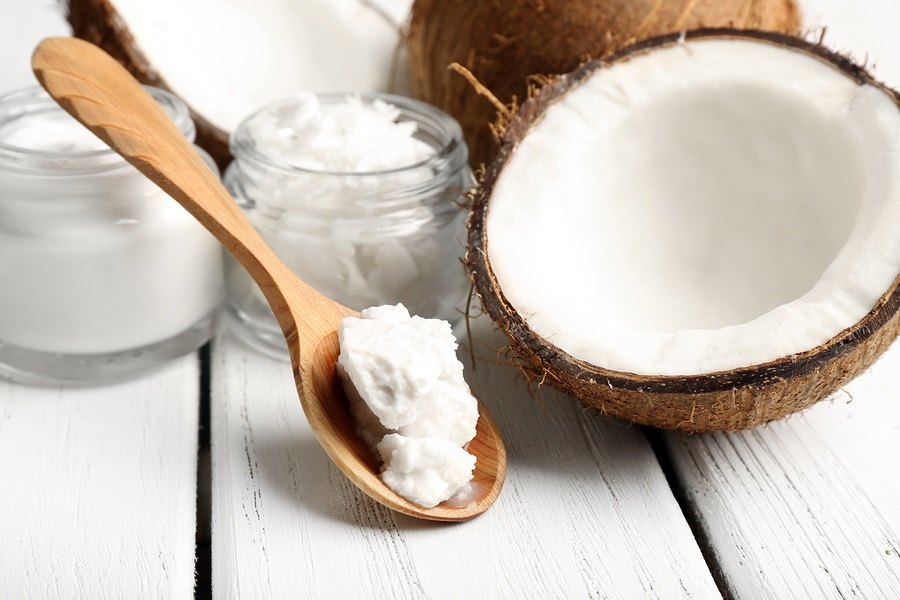
by Brian Shilhavy
Editor, Health Impact News
A 2016 study published in the American Journal of Physiology challenged a long-held belief that high fat diets contributed to colon cancer. The authors of the study correctly stated that the lipid profile of the fats being consumed is very important to understand:
High-fat-diet (HFD) consumption is associated with colon cancer risk. However, little is known about how the lipid composition of a HFD can influence pro-oncogenic processes.
Understanding the role of fats in the diet greatly depends on the composition of those fats. For many years now, the standard government nutrition advice has been to reduce saturated fat consumption in favor of polyunsaturated fats, mainly oils derived from corn and soy, the modern-day “vegetable oils.”
The theory that polyunsaturated fats are healthier than saturated fats is a theory that has been completely proven false over the past several years. Therefore, decades of USDA recommendations to reduce saturated fats has led to an excess of polyunsaturated oils in the American diet, and many of them hydrogenated to make them more shelf-stable to mimic saturated fats. This has led to many health problems, and a move away from hydrogenated polyunsaturated oils that produce deadly trans-fats.
Therefore, this study out of the University of South Carolina looking at the effects of saturated fats on colon cancer is a very welcome study, and many more similar theories about the “dangers” of high fat diets should be challenged and looked at more carefully, studying the lipid composition of the fats being consumed.
Saturated Fats and Coconut Oil Actually Prevent Colon Cancer
Here is how the researchers set up the study on mice:
We examined the effects of three HFDs differing in the percentage of total calories from saturated fat (SF) (6%, 12%, and 24% of total caloric intake), but identical in total fat (40%), and a commercially available Western Diet (26% and 41% saturated and total fat, respectively) on colon cancer development using the AOM/DSS murine model. A second dose-response experiment was performed using diets supplemented with the saturated-fatty-acid (SFA)-rich coconut oil.
Note that while the “Western Diet” also had a high content of saturated fat, it was composed of processed milk (Anhydrous Milkfat), while the control diets derived their saturated fat from coconut oil.
The conclusions of their experiments showed that a high fat diet rich in saturated fats, specifically coconut oil, protected against colon cancer:
We found an inverse association between SF content and tumor burden. Further, increased SF content was associated with reduced inflammation, increased apoptosis, and decreased proliferation. Our data suggests that high dietary SF is protective in the AOM/DSS model of colon cancer, which may be due, at least in part, to the ability of SF to maintain intestinal barrier integrity through increased colonic Muc2.
Coconut Oil: Nature’s Richest Source of Saturated Fat
It is no secret as to why American diet advice switched to polyunsaturated fats over saturated fats in the 1970s. It was for political reasons, not nutritional reasons. Saturated fats have been considered a healthy component of traditional diets for many thousands of years. The American polyunsaturated fats are mostly derived from corn and soy, two highly subsidized crops that make the U.S. the world leaders in corn and soy production. After World War II, industrialized processes gave us the seed-expeller technology to extract oil from corn and soy, propelling them into the food chain in mass for the first time in history. Over 90% of the soybean and corn crops today are genetically modified (GMO).
Most of America’s source of saturated fat comes from dairy products, and are highly processed. Butter has been demonized for years, but is now making a comeback. While rare, butter from grass-fed animals grazing on pasture as opposed to sitting in feedlots eating GMO corn and soy-based feeds is a healthy addition to one’s diet.
Nature’s richest source of saturated fats, however, is coconut oil, which is over 95% saturated. Coconut oil is also unique because it is a rich source of medium chain fatty acids, such as lauric acid. Lauric acid is a popular commodity in the food preservation industry, as it is known to destroy many pathogens. Coconut oil is about 50% lauric acid. Nature’s next best source is human breast milk, which contains about 7% lauric acid.
Coconut oil was demonized for many years also (and still is in most mainstream media reports), and when I first started publishing the truth about coconut oil back in 2000, there were very few choices to purchase it in the U.S., and even then it was the refined variety. I was living in the Philippines with my family at the time, and we were the first ones to import a “virgin” coconut oil into the U.S. market back in 2002. Today, most stores carry some kind of coconut oil, and it is finally making its way back into the diets of many Americans.
Reference
High-Fat Diets Rich in Dietary Saturated Fat Protect Against Azoxymethane/Dextran Sulfate Sodium Induced Colon Cancer. American Journal of Physiology – Gastrointestinal and Liver Physiology – 2016 Mar 31
Virgin Coconut Oil:
How it has changed people’s lives and how it can change yours!
Includes 85 recipes – Free shipping available!
Virgin Coconut Oil Beats Drugs in Treating Alzheimer’s
A Holistic Guide to Geriatric Care – eBook
In this book we look at the problems and causes of Alzheimer’s as they are related to an epidemic of prescription drugs being marketed to seniors, and we look at the strong evidence for dietary intervention, starting with coconut oil.
We bring you the stories of 10 different families who saw Alzheimer’s lessened or reversed by adding coconut oil to their diet, which is representative of thousands of others who are experiencing similar results. We offer guidelines on usage and types of coconut oil to consider, as well as other non-drug tips for holistic geriatric care.
Our target audience is the millions of caregivers out there loving caring for our senior population who will find it difficult to get this information from their doctors or medical professionals not trained in these areas.



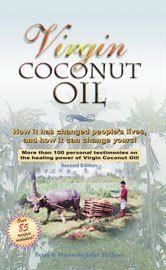
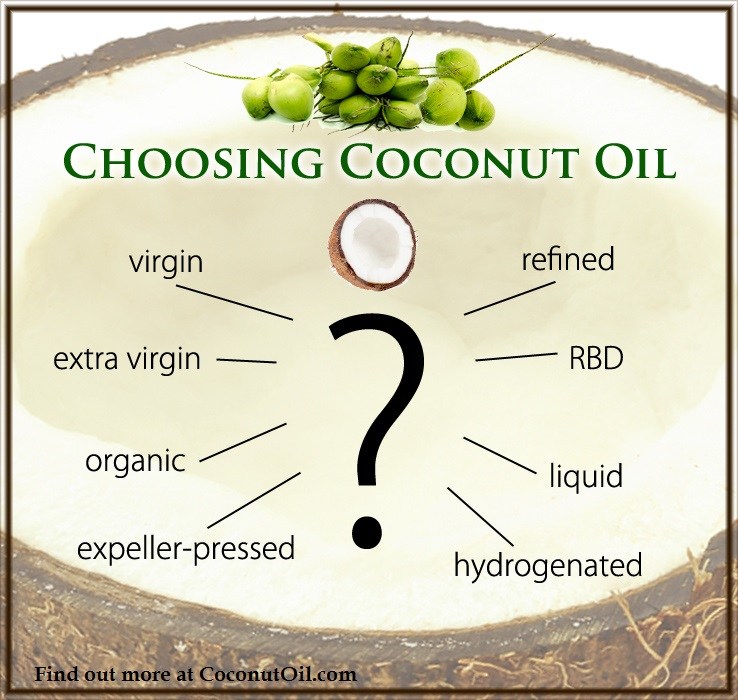

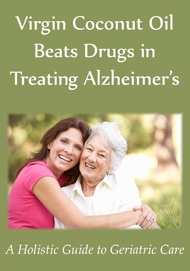
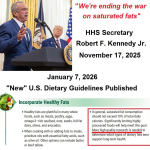 HHS Secretary Kennedy Breaks His Promise: "War on Saturated Fat" Kept in Tact with New U.S. Dietary Guidelines
HHS Secretary Kennedy Breaks His Promise: "War on Saturated Fat" Kept in Tact with New U.S. Dietary Guidelines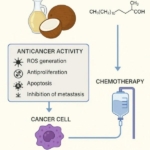 Research Continues to Show Virgin Coconut Oil's Effectiveness in Treating Cancer
Research Continues to Show Virgin Coconut Oil's Effectiveness in Treating Cancer Coconut Oil Continues to Benefit Alzheimer's Patients over Drugs as Studies Continue for Neurological Benefits
Coconut Oil Continues to Benefit Alzheimer's Patients over Drugs as Studies Continue for Neurological Benefits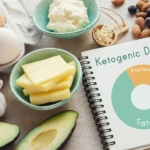 How the Simple High-Fat Low-Carb Ketogenic Diet Continues to Change People's Lives
How the Simple High-Fat Low-Carb Ketogenic Diet Continues to Change People's Lives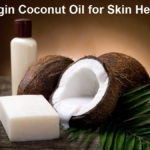 New Studies Continue to Show that Coconut Oil is the Best Oil for Treating Skin Conditions and Maintaining Healthy Skin and Teeth
New Studies Continue to Show that Coconut Oil is the Best Oil for Treating Skin Conditions and Maintaining Healthy Skin and Teeth
One Comment